If there’s one word to describe Marvel Studios in recent times, it’s experimentation. From the commercial disappointment of Eternals to multiversal, fan service-y projects including Spider-Man: No Way Home, Marvel hasn’t been shy about taking creative risks with its post-Avengers: Endgame productions.
Inventive as those Marvel movies have been, it’s Disney Plus where Marvel’s artistic license has truly shone. Disney’s streamer has provided a playground-like platform for Marvel’s creative juices to flow, with the sitcom styling of WandaVision and the multiverse’s initial emergence in Loki signifying a sea change in the studio’s creative process. With their character study-like exploration, multi-genre positioning, and entertainment value, it’s unsurprising that the duo are the most popular Marvel shows to date.
It’s with Moon Knight that this newly-developed creative recipe feels like a truly innovative step for the studio, though. Marvel’s latest TV offering is a superbly surreal, subversive, and supernatural-fuelled addition to its established back catalog. It’s a show that fits into the Marvel Cinematic Universe (MCU) but, equally, it’s simultaneously capable of existing outside of it – no small feat in a franchise that’s built on interconnectivity and crossovers. And, without wanting to sound hyperbolic, it’s quite possibly the best TV series Marvel has ever made.
Only in dreams
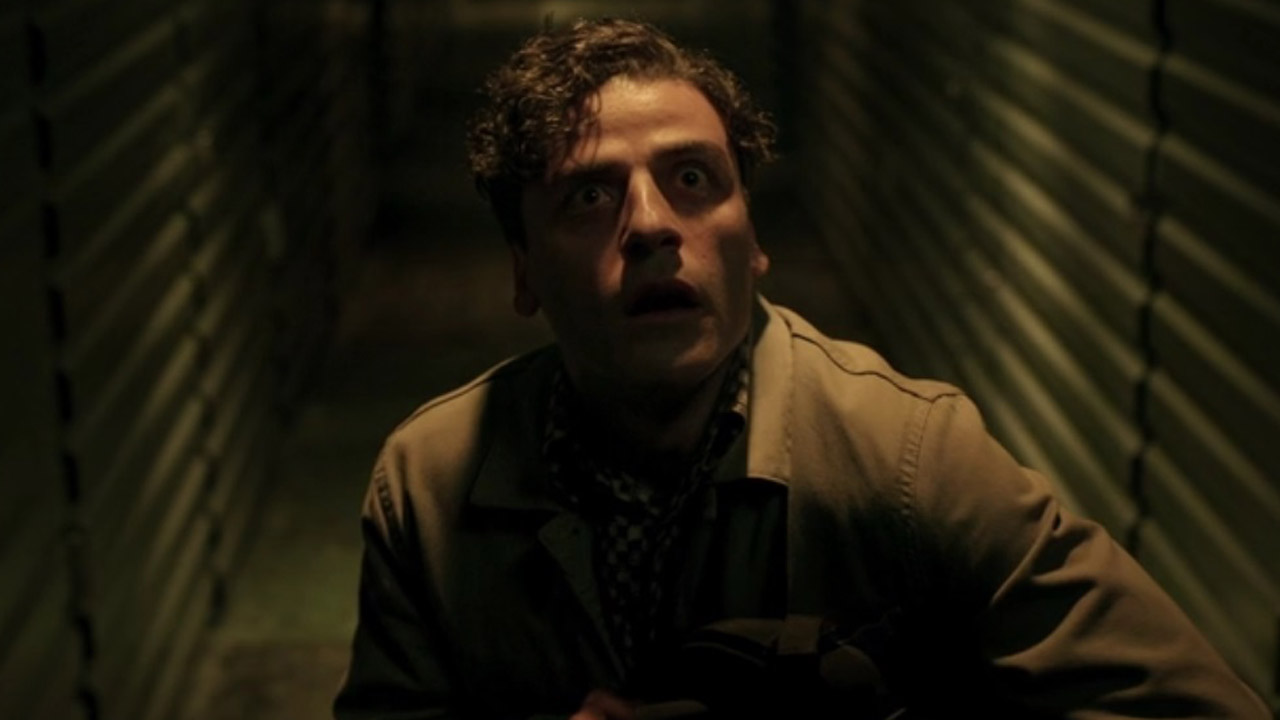
Set in the present day of the MCU, Moon Knight tells the story of Steven Grant (Oscar Isaac), a gentle museum gift shop employee living a seemingly ordinary life.
Steven, though, suffers from blackouts and regularly dreams of leading a double life. After one particularly nightmarish sequence sees Grant run afoul of the mysterious Arthur Harrow (Ethan Hawke), he discovers that he has Dissociative Identity Disorder, a mental health condition whereby a person has multiple personalities.
It just so happens that Grant’s other persona – a ruthless mercenary called Marc Spector (Isaac) – is the earthly avatar of Khonshu (F. Murray Abraham), the Egyptian God of the moon and vengeance. Granted superhuman abilities by the demigod, Marc also masquerades as the vigilante known as Moon Knight, who’s trying to thwart Harrow’s nefarious world-ending scheme. Drawn into a conspiratorial mission that he has no business being a part of, Steven must learn to work alongside Marc and the latter’s ally Layla El-Faouly (May Calamawy) to stop Harrow while grappling with the inner conflict inside his own head.
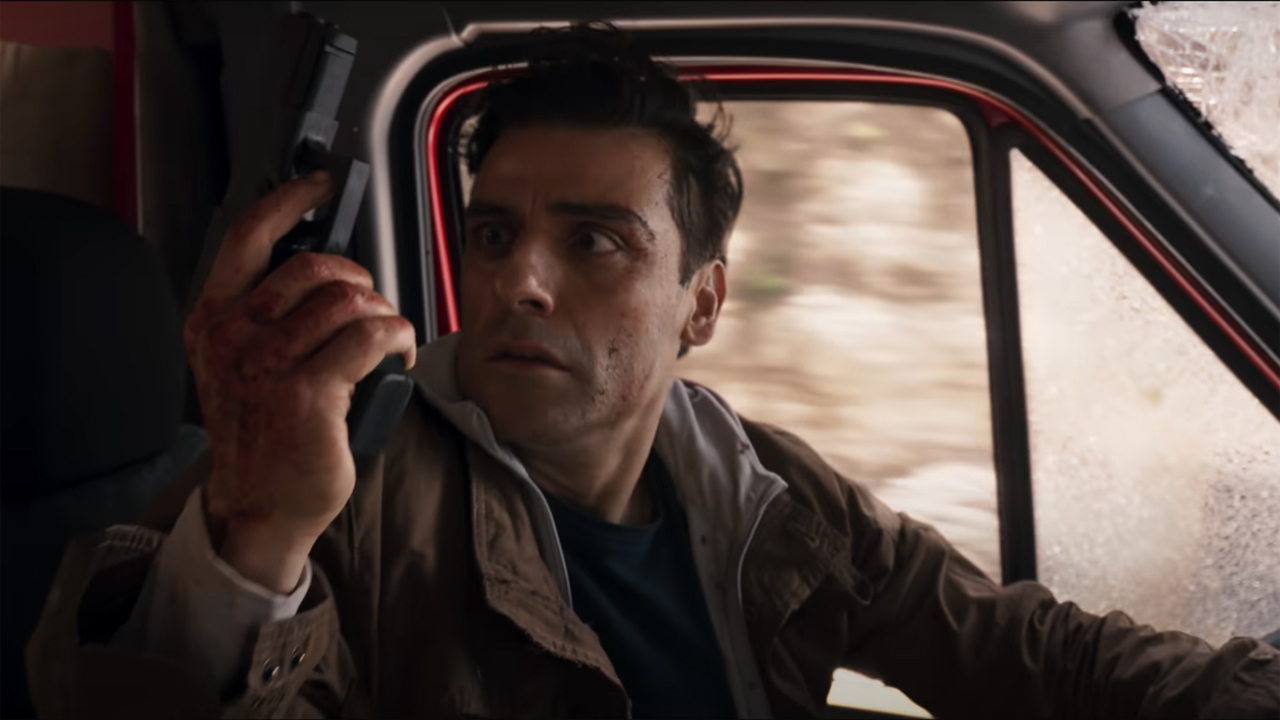
That synopsis may sound like standard fare for an MCU production – that is, if you remove the mental health aspect that sets Moon Knight apart from other Marvel heroes. As plot summaries go, though, it doesn’t do justice to the frankly mind-bending and disorienting structure of Moon Knight’s opening episode.
For one, its use of nonlinear storytelling makes for tense and disconcerting viewing. Steven suffers blackouts throughout the first episode – which, to summarize, is when Marc takes over Steven’s body – but we never see the events that play out during these sequences. Instead, jolting camera transitions and cuts are spliced together to make it seem like we’ve experienced the blackout alongside Steven, and unknowingly jumped forward in – or lost track of – time with him. Such instances occur whenever Steven is transported to an unknown location, or moments after he’s been involved in a violent confrontation with Harrow’s followers.
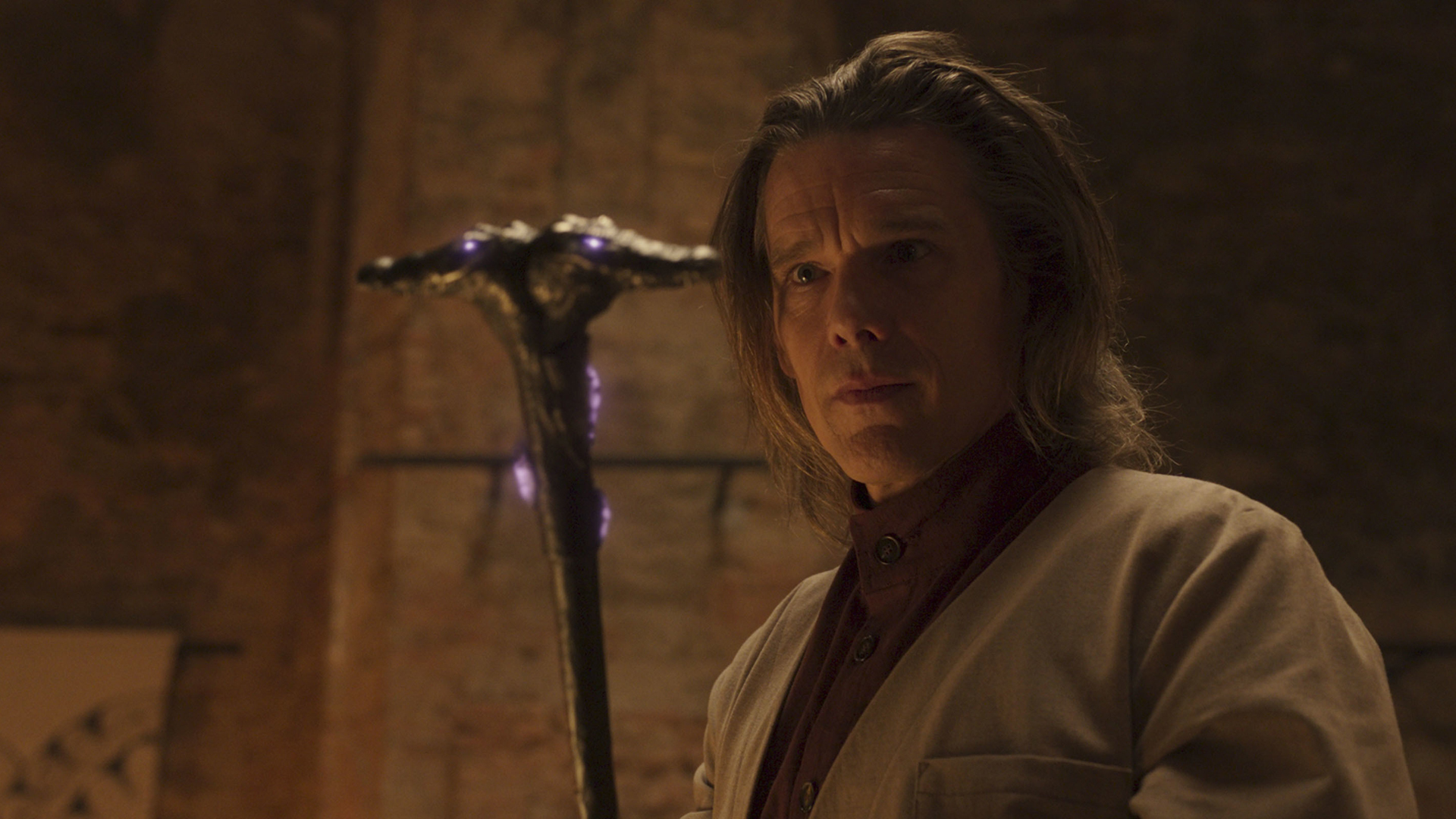
It’s a level of narrative surrealism seen in similarly nonlinear psychological thrillers, such as Memento or Mulholland Drive, that makes Moon Knight a highly satisfying watch. Its opening episode is intentionally confusing, but that’s what makes it great, and it’s only through Steven’s plucky probing that we’re able to navigate Moon Knight’s initially puzzling plot. We’re on this journey with him, rather than simply observing the plot that plays out. Ironically, Steven’s positioning as a physical conduit for audiences is near-identical to the symbiotic relationship that Steven/Marc has with Khonshu, which only serves to blur the lines further between fiction and reality.
Of equal intrigue is Marvel’s decision to introduce Steven/Marc in a similar way to Tom Holland’s Spider-Man. The webslinger’s origin story has been covered extensively in previous Spider-Man movies, so there was no need to re-tread old ground as part of Spidey’s MCU arrival in 2016’s Captain America: Civil War.
Moon Knight’s introduction is similarly laid out – i.e. a character who’s pre-established in the MCU. The potential problem here, though, is Moon Knight’s relative obscurity among MCU fans. Marvel’s decision to forego a traditional origin story approach for the vigilante, then, may seem like a baffling choice for his live-action debut.
It’s a level of narrative surrealism seen in similarly nonlinear psychological thrillers
Weirdly, though, this non-origin story approach works. The show’s nonlinearity might make you feel like you’ve missed a previous episode, or a Moon Knight cameo appearance in another production, given the unusual way that Steven/Marc is introduced.
But it’s that exact vagueness that allows the show to bypass the conventional origin story formula. Rather than force audiences to sit through Marc’s backstory, how he acquired his powers, and why Steven is currently in charge of the pair’s body, these story beats are drip fed to us through Moon Knight’s episodes. In doing so, Moon Knight’s story and cast are able to hit the ground running, enabling viewers to immerse themselves fully in its bewildering plot and learn about its multiple mysteries as they unfold naturally.
A waxing and waning narrative
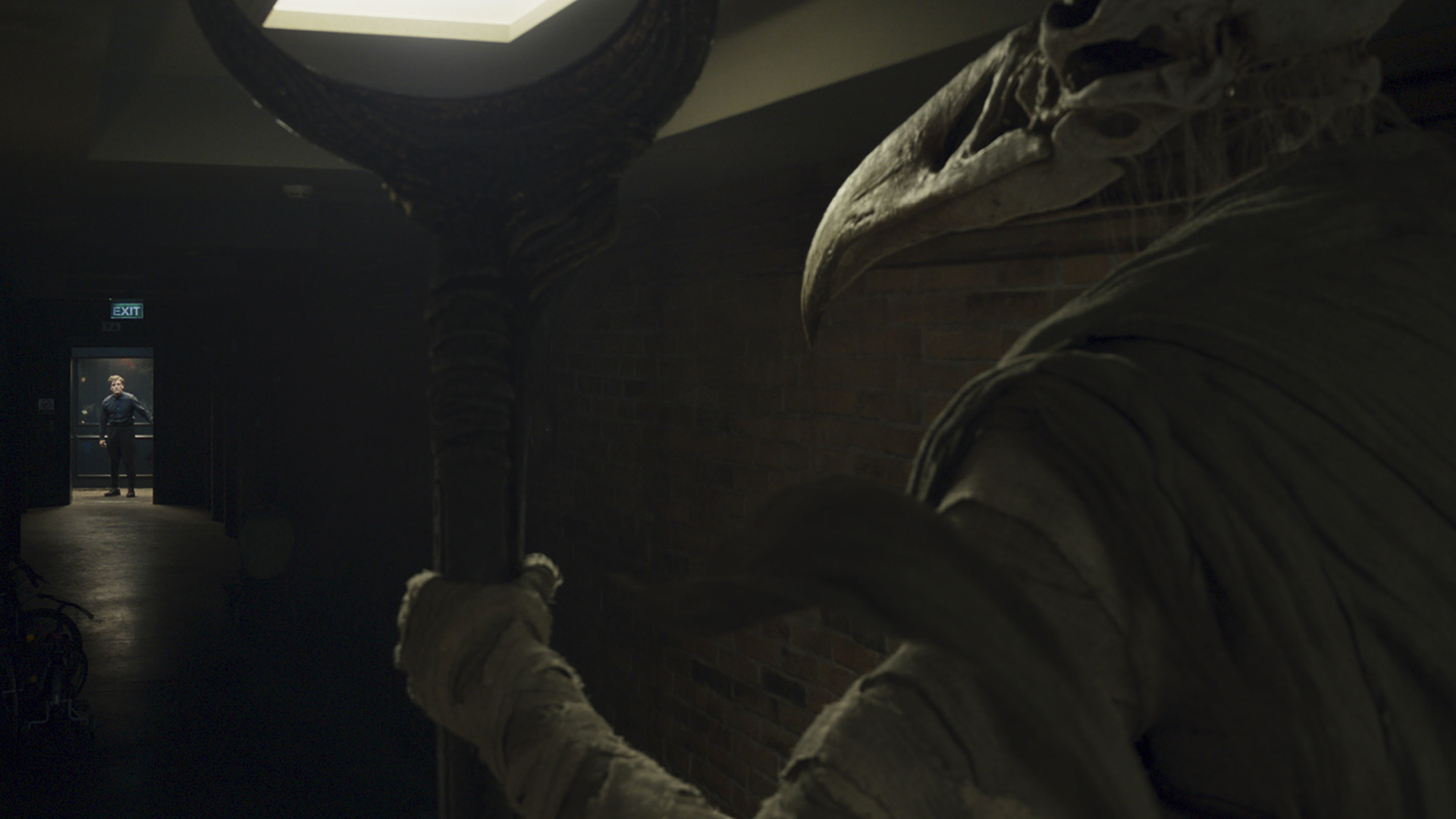
While Moon Knight circumnavigates the well-worn origin story path, it can’t avoid another major trap that Marvel projects fall into – straying into ‘save the world’ narrative territory.
That may sound like an odd criticism to level at a superhero production. After all, any good hero story culminates in the protagonist defeating the villain. It’s a plot device that Marvel movies and shows have largely been built on.
Here, though, this formulaic story beat arrives too early in Moon Knight’s story. After the opening episode’s striking disposition, Moon Knight doesn’t continue to run with its subversive sensibilities. Instead, they’re pushed to the periphery as the show largely leans into generic superhero plot territory from episode 2 onwards, giving up too many of its secrets as it goes.
And that’s a shame. Moon Knight truly shines when it fully embraces its mystical and gothic traits, and reveals its mysterious plot points in a suspenseful way. Without spoiling anything, there are moments in episodes 3 and 4 that veer back into freakish and mythological territory – the fourth episode’s final sequence, in particular, is arguably the most unexpected and mind-boggling turn in MCU history. It’s these qualities that give Moon Knight a distinct feel among its Marvel brethren, so it’s a pity that they’re occasionally relegated to the background.
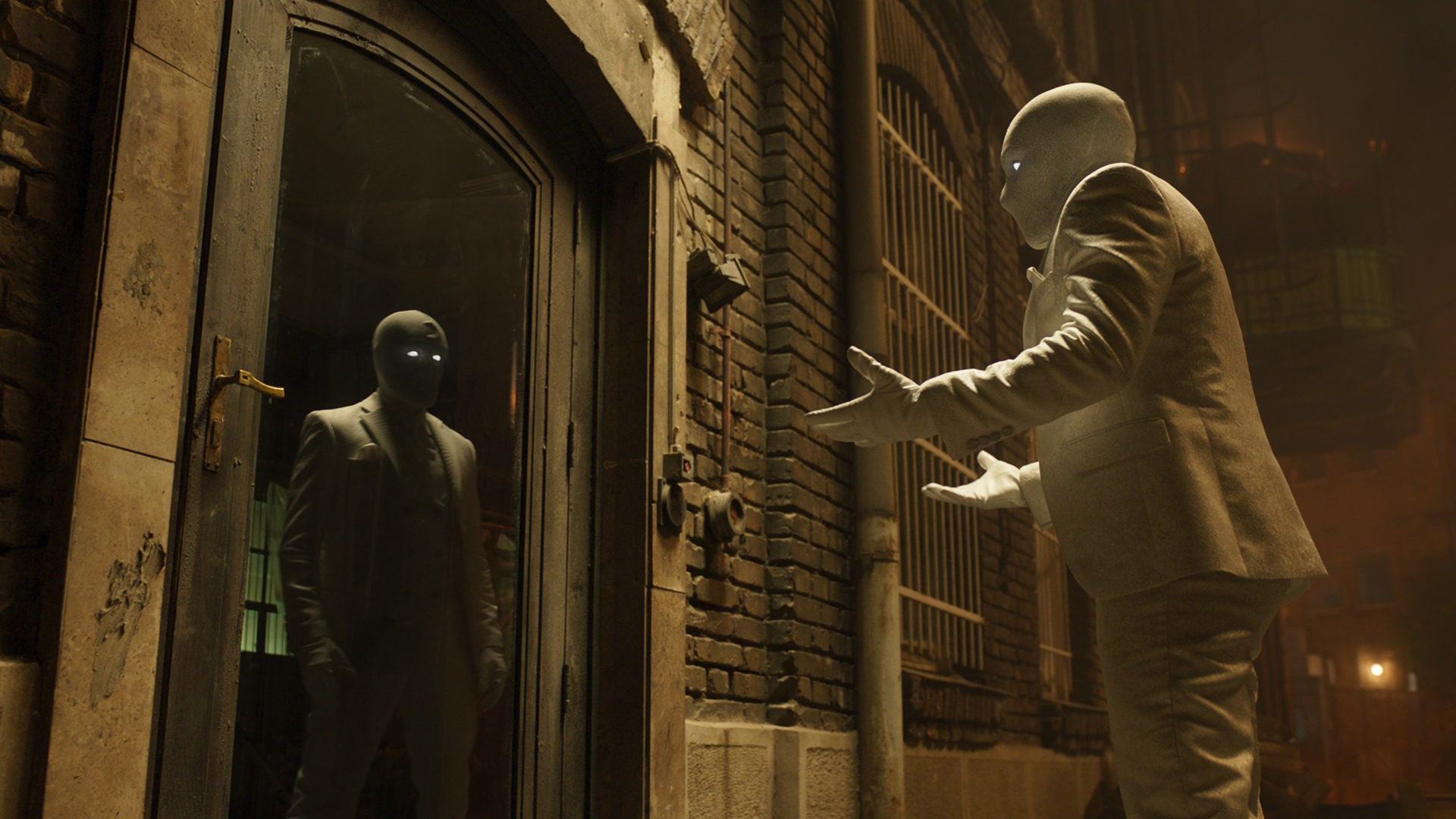
That well-defined and unsettling vibe is key to Moon Knight’s positioning as the least MCU-like project that Marvel has ever created. The lack of connections to previous Marvel productions allows Moon Knight to be as independent as 2008’s Iron Man was – post-credits scene aside – and gives it the freedom to be as perplexing and shocking as it wants.
And shocking it certainly is. Moon Knight is Marvel’s most mature offering yet; its vicious and slightly more blood-soaked aesthetic delivering a show befitting of its TV-14 and 16+ age ratings in the US and UK. Scenes where Steven struggles to maintain his grip on reality, and those comprising horror-inducing Khonshu appearances, owe much to the artistry of directors Mohamed Diab, Aaron Moorhead, and Justin Benson. The trio’s psychological thriller and indie horror roots are clearly visible throughout, and provide genuinely frightening and anxiety-inducing moments on a pleasingly consistent basis.
It should be noted, too, that Moon Knight sensitively handles its mental health subject matter with obligatory care. Given the thoughtful manner in which mental health is covered in Moon Knight’s comic series, the live-action adaptation needed to follow suit. And it does, with showrunner Jeremy Slater exploring this delicate topic with honesty, compassion, and authenticity.
Stars in the night sky
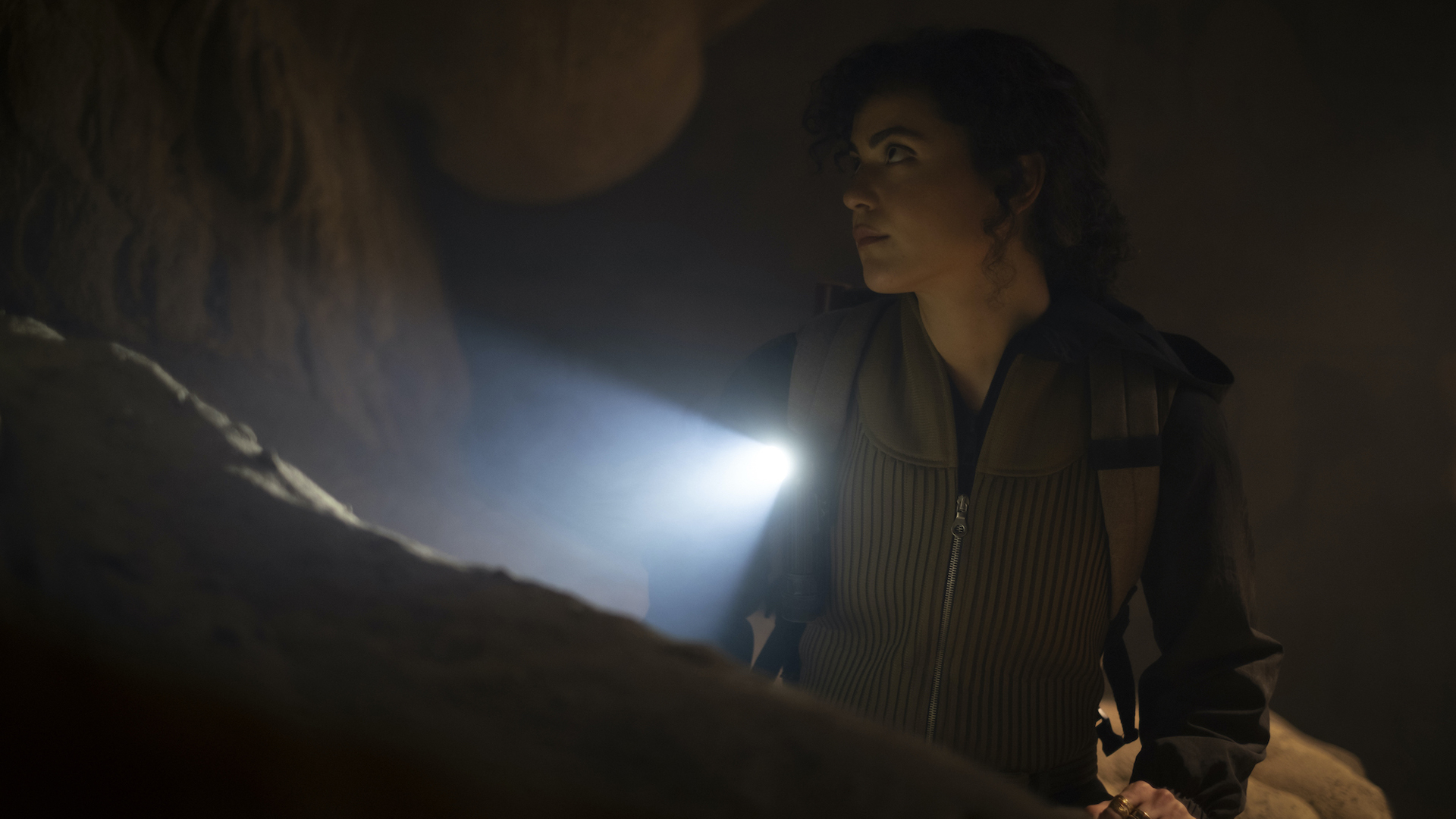
A character study-style project like Moon Knight requires a talented actor to lead it. And, in Oscar Isaac, Moon Knight has a bonafide superstar capable of delivering a suitably commanding and mesmeric performance.
Steven may be a bumbling, Mr Bean-esque character who’s simply along for the ride, but Isaac’s sincere portrayal of a tortured soul is sympathetically humanizing. His faux British accent was a hot topic of discussion after the first trailer landed online, but it’s Isaac’s flawless delivery of quintessentially dry British humor that truly generates laugh out loud moments throughout.
As the self-assured Marc, Isaac equally packs a punch when it comes to Steven’s serious alter-ego. Battles between Marc/Moon Knight and his pursuers are fraught, frenetic and fairly brutal, but it’s the internal fight between Steven and Marc that’s most significant here. The polarity between these personalities couldn’t be more striking – it’s like The Odd Couple played out inside a single person – and the multiplicity of Moon Knight’s character allows Isaac to show off his acting range with satisfying effect.
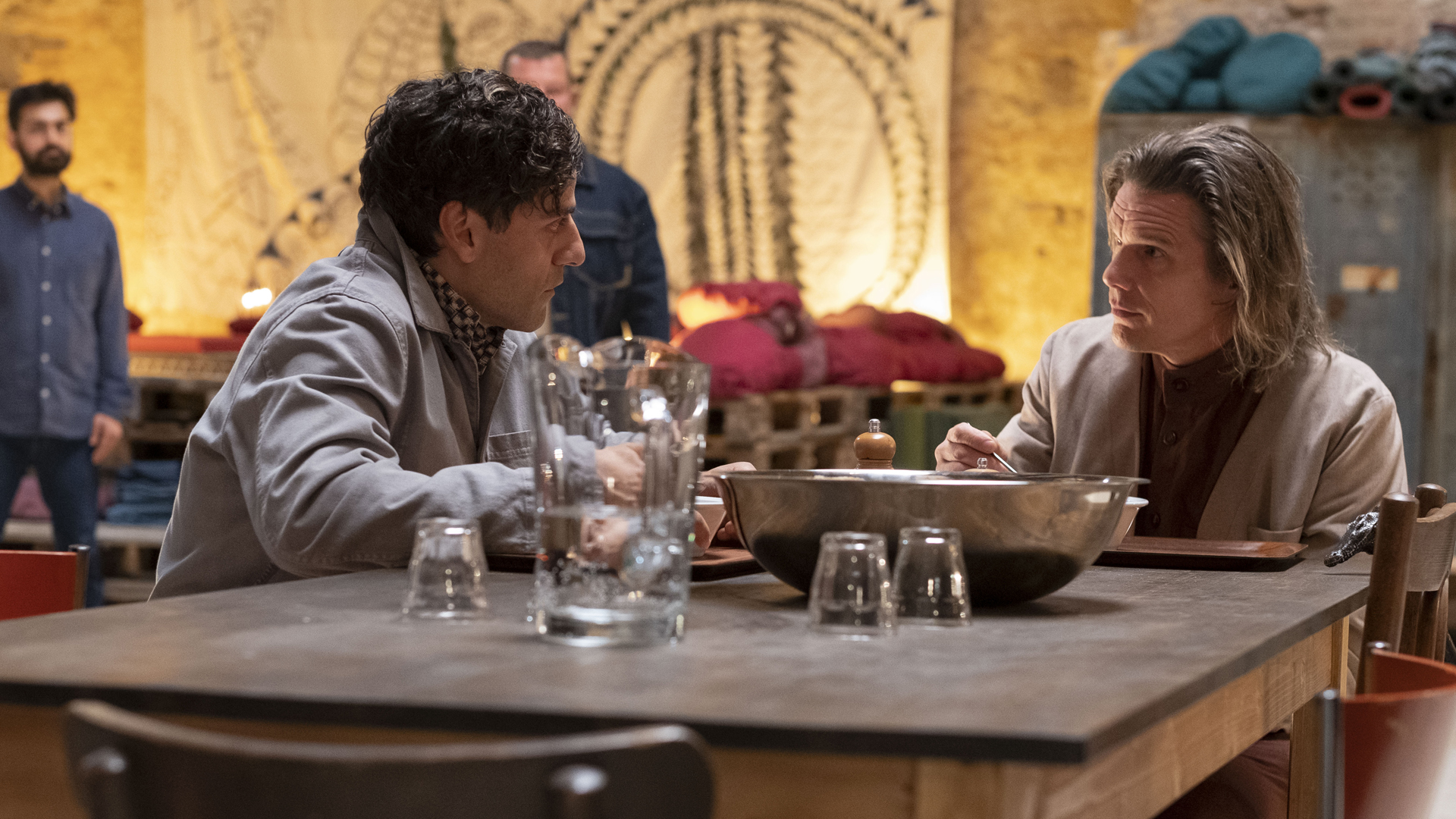
It’s not only Isaac who brings their A game to proceedings. Hawke is excellent as the cunning and manipulative foil to Isaac’s troubled anti-hero; the mentally stable Harrow subverting the traditional film character formula of a sound-of-mind hero fighting a villain living with a mental illness. It’s an intriguing dichotomy – almost akin to an antagonistic doctor-patient relationship – and certainly plays into the theme of duality at the heart of Moon Knight’s six-episode run.
Calamawy, meanwhile, revels in the role of Layla; a rebel with a cause who more than holds her own as the female lead in a male-dominated production. Her chemistry with Isaac feels natural, and the back and forth between the duo – particularly the juxtaposition of how she speaks and relates to Marc and Steven, as Marc and Layla’s relationship is steadily revealed – make for entertaining viewing.
Our verdict
Moon Knight is a captivating, innovative TV series unlike anything Marvel has produced so far. It takes big swings from narrative and thematic perspectives, but those creative risks more than pay off here. If anything, they speak to Marvel’s growing confidence to fully diversify their range of projects.
It certainly benefits from a lack of MCU ties, and that disconnect is sure to draw in newcomers who may have been apprehensive about jumping into the MCU after 30-plus movies and shows. Given the increasingly convoluted nature of the MCU, Moon Knight could even be the first of many Marvel projects that exist in the MCU but act independently of each other. It would be a bold move, but Moon Knight proves that it’s possible.
Marvel has earned critical acclaim for the likes of Avengers: Endgame, WandaVision, and Spider-Man: No Way Home, and fans will endlessly debate which of its productions is the greatest ever.
Moon Knight deserves to be among that number. With its unnerving and mysterious story, not-so-family friendly aesthetic and themes, multi-genre exploration, and surprising educational value, Moon Knight is Marvel’s most creative project ever – well, maybe until Doctor Strange 2 arrives. And that says a lot about how thoroughly enjoyable and groundbreaking it is when you consider what’s come before.
Moon Knight launches exclusively on Disney Plus on Wednesday, March 30.
from TechRadar - All the latest technology news https://ift.tt/QGebDZY

No comments:
Post a Comment